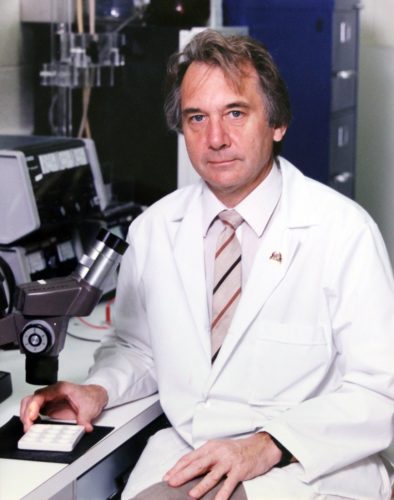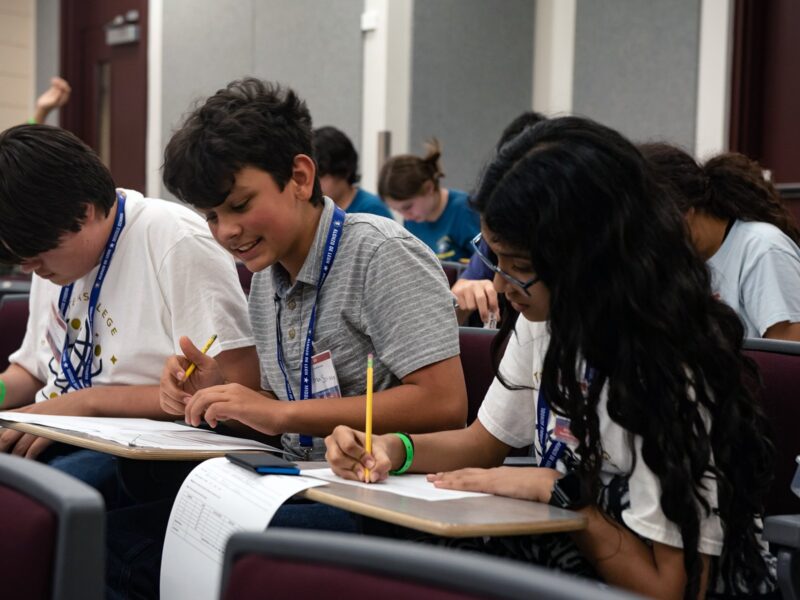In 2016, Texas A&M University mourned the death of Senior Distinguished Professor of Biology Dr. Timothy C. Hall. This week, Texas A&M will celebrate his life and pioneering research career with a two-day event showcasing some of his biggest successes, from breakthroughs to former students.
The 2017 Timothy C. Hall Memorial Symposium is set for May 18-19 in the Interdisciplinary Life Sciences Building on the Texas A&M campus. Thursday’s (May 18) events will run from 8:30 a.m. to 3:30 p.m., followed by a banquet for Hall Lab members and guests. Events will resume Friday (May 19) at 8:30 a.m. and conclude with 11:45 a.m. remarks by Texas A&M Department of Biology Professor and Head Dr. Thomas D. McKnight, followed by a lunch for all participants.
Featured speakers include James Carrington, president of the Danforth Plant Science Center; Theo Dreher, professor of microbiology at Oregon State University; Laksminarayan Iyer, staff scientist for the National Center for Biotechnology Information at the National Institutes of Health; Greg Pogue, interim executive director of the IC2 Institute at the University of Texas at Austin; Allen Miller, professor of plant pathology and microbiology at Iowa State University; Eugene Shakirov, research associate in the Department of Integrative Biology at UT-Austin; and Mahesh Chandrasekharan, assistant professor in the Huntsman Cancer Institute at the University of Utah.
Hall passed away Feb. 23, 2016, at the age of 78. He joined the Texas A&M faculty in 1984 as a distinguished professor of biology and head of the department. He was recruited to transform it from a largely service-teaching-based unit to one with a healthier balance of teaching and research more appropriate for a major research university. Hall also was founder and director of the Texas A&M Institute of Developmental and Molecular Biology.
As a pioneer of plant molecular biology, plant transformation and related biotechnology, Hall served more than 30 years as an integral part of Texas A&M Biology, building a legacy of scientific and educational achievement. His laboratory focused on extensive use of recombinant DNA strategies and plant transformation and regeneration procedures to study molecular mechanisms of gene structure, function and regulation in higher plants and their viruses.
Prior to coming to Texas A&M, Hall spent 16 years on faculty at the University of Wisconsin-Madison, where McKnight said Hall had established himself as one of the founders of the field of plant molecular biology by rapidly applying cutting-edge techniques to longstanding problems in the plant sciences.
“Tim’s lab was the first to achieve the transfer of a functional gene from one plant to another, and he helped set up the Agrigenetics Advanced Research Laboratory, one of the first plant biotechnology companies in the early 1980s,” McKnight said at the time of Hall’s death. “It would be an understatement to say that Tim was at the scientific forefront during most of his career; he was the forefront.”
After stepping down as department head in 1992, Hall devoted much of his time to research. He also enjoyed sharing his passion for plants by teaching BIOL 101: Introductory Botany to 100 students each fall. Despite the fact that Hall received numerous national and international accolades during his lengthy career, McKnight said Hall considered his 2004 Professor-of-the-Semester Award from the Chi Omega Sorority one of his most treasured honors due to his passion for his students, many whom have gone on to highly successful careers in academia, the biotechnology industry and government research agencies.
The memorial symposium is sponsored in part by one of those students, Eric Yong Xu ’93, who in 2015 made the lead gift that established the $2 million Timothy C. Hall-Heep Foundation Distinguished Visiting Faculty Chair in Biology through the Texas A&M Foundation to bring distinguished faculty members to campus through the Hagler Institute for Advanced Study at Texas A&M University.
To find more information about the symposium and see the complete schedule of speakers and planned activities, visit the event website.
###
This story by Shana K. Hutchins originally appeared on the College of Science website.




